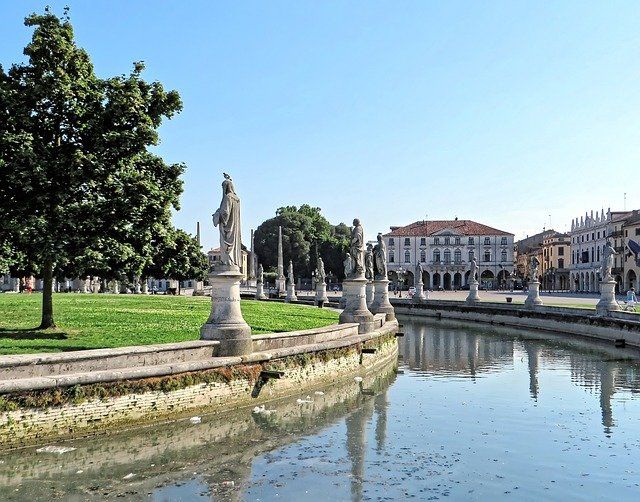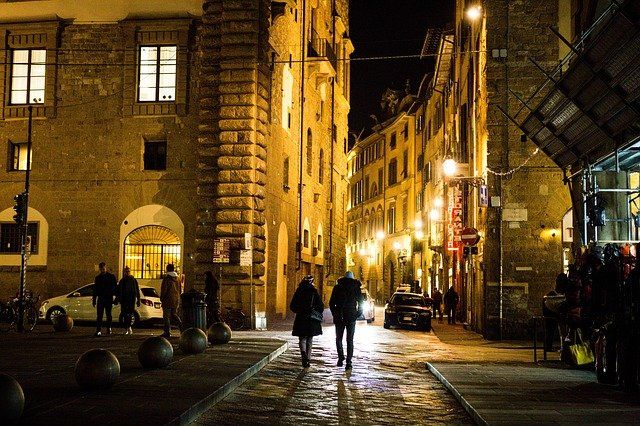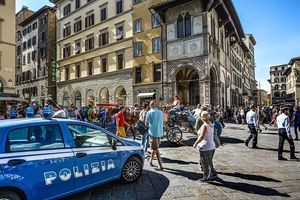One of the first words a foreigner is taught on arrival in Italy is crisi, which recognisably corresponds to the English word crisis. Routinely, Italian governments are ‘in-and-out’, the currency is ‘up-or-down’, trains, planes and buses are ‘running-or-on-strike’, and the city traffic is always ‘stop-and-go’. Crises seem to occur everywhere and almost daily!
However, this word which usually describes a negative experience, has come to have a positive meaning in the life of our Institution, IFED (Instituto di Formazione Evangelica e Documentazione). It has taken on the meaning of ‘turning-point’, as God has been pleased to use the centre in important ways to affect the lives of professing Christians.
The process by which the ‘crisis’ occurs is often the same. There is an initial contact between a person and IFED, perhaps through IFED’s magazine, Studi di Teologia, or through its national or regional seminars, or through its various annual courses. Maybe there has been a visit to our library. This person is attracted by the possibility of learning more of God’s Word. Gradually, however, initial enthusiasm wanes and it is realized that the disciplined study and practice of God’s Word is demanding. Then the ‘student’ experiences a ‘crisis’. He or she realizes that God is not, as in Roman Catholic thinking, only for the ‘religious’ areas of life. He is Lord of all of life and his demands are not optional but obligatory. Sunday’s priorities are understood to be Monday’s too!

Submitting to Scripture
Many men and women have used the centre. They often come with their own presuppositions, expecting IFED to give some sort of religious blessing on what they already know and practise. This does not happen. Rather, God, through his Word, calls them to recognize his sovereignty over all of life. This, in turn, has led some to a new way of living the Christian life, to deeper submission to the Scriptures. For example, some of those involved in business have given up their jobs, when they realized that corrupt business-practices were no longer acceptable. Others, including technicians, office workers, teachers and tradesmen, have had to find new solutions to questions of work ethics, in the light of the purity of the gospel. Almost everyone using IFED has run up against a fresh discovery of the demands of God in work and home life. This has often led to a massive personal crisis, because of the economic or social cost involved. Some resolve the crisis by leaving the Institute and not coming back. Others try unsuccessfully to combine obedience to God with old patterns of living, thus treating biblical teaching as some kind of ‘add-on’ to the rest of life. Most, thankfully, have wrestled with the issues before God, and have emerged with a new and deeper obedience to his Word at home, at work and in their local church.

The majestic way
As a missionary who has lived and worked in Italy for nearly thirty years, I am deeply grateful to God for this last category of people. Italy has a reputation for being the graveyard of both missionaries and mission work. In God’s kindness, through the ministry of IFED, I have been privileged to see God’s Word becoming foundational in the lives of Christians. People have become more firmly grounded in the grace of God and have been equipped to withstand the icy winds of Italy’s hostility to the gospel. It is sometimes agonizing to see a personal ‘crisis’ taking place in someone else. In the same way it must have touched Jesus’ heart deeply to witness the traumatic inner struggle of the rich young ruler. Yet, what joy there is when God’s Word triumphs, as it did in the life of Zaccheus!
During a discussion with a very intelligent student, the cost involved in following Christ was raised, evoking the following comment about Christian discipleship: ‘Yes, but this is the majestic way of life!’ And so it is! ‘Add-on’ Christianity, while initially attractive, is flat and insipid. ‘Majestic’ Christianity, while costly in its ‘crisis’, is worth the world. God cannot be ‘added on’. If he is not exclusively first, then he is not Lord at all.








